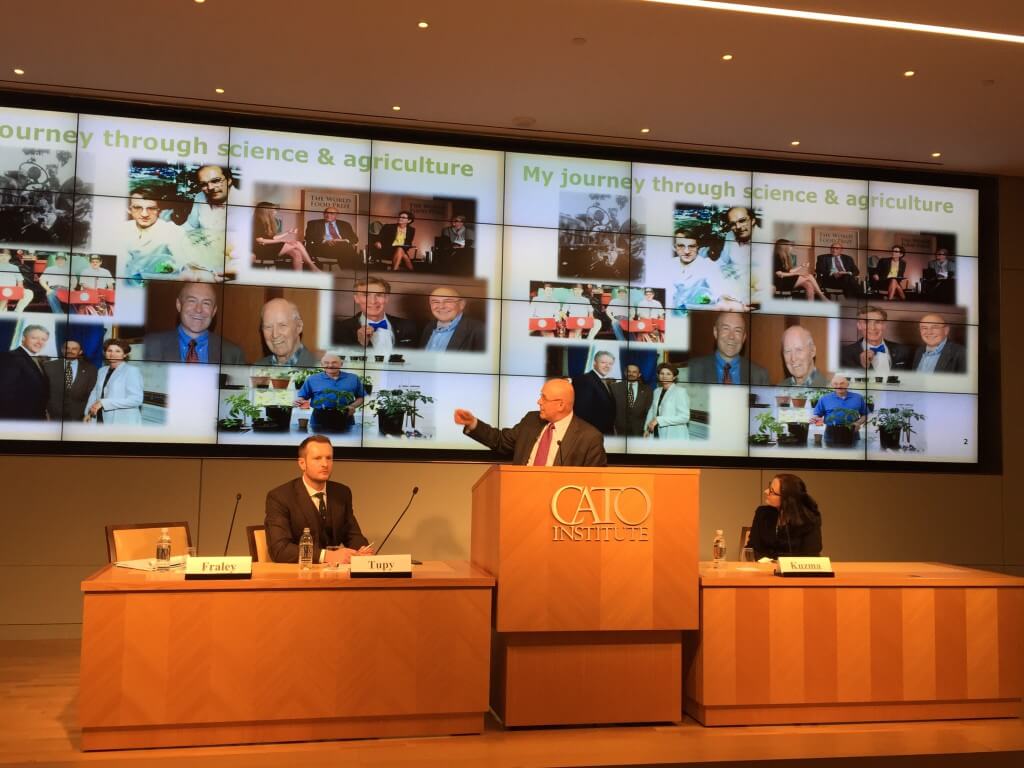
Biotechnology experts spoke at the Cato Institute on GMO science and its impact on food supply and medical innovations.
WASHINGTON– Genetically modified organisms are crucial to ensuring there is enough food for the rising number of people worldwide, but controversy over the risks of genetically engineered food is hurting public support and development of new products, biotechnology experts said Wednesday.
Widely associated with agriculture, GMOs make crops like corn and rice resistant to herbicides and pesticides so yield is increased. Genetic engineering also plays a major role in health care because half of the new drugs developed in the United States are made using this technology, said Robert Fraley, executive vice president and chief technology officer with Monsanto, an agricultural biotechnology corporation.
“This is a key technology that has changed health care, agriculture and farming,” said Fraley, during a discussion at the Cato Institute, a libertarian think tank.
But North Carolina State University science policy professor Jennifer Kuzma said biotech companies need to listen to people who are concerned about whether genetically engineered food and drugs can cause long-term health problems.
“The system is based on sound science, but the risk and benefits of GMOs are highly contested,” said Kuzma. “There is a lot of uncertainty and there’s no such thing as zero risk.”
According to a report released in 2012 by the International Service for the Acquisition of Agri-Biotech Applications, the GMO food industry has expanded to cover 30 different countries and more than 1.5 billion hectares of land. The abundance of these crops has made them the “most thoroughly studied food on the planet” because international regulatory agencies also examine them, said Fraley.
However studies from the Center for Food Safety, an environmental advocacy group, found that GMO products have had adverse effects on people, such as an increase in allergy sensitivity.
A study by the Pew Research Center last year showed that only 37 percent of the public said products containing GMOs are safe while 88 percent of scientists polled said there is generally no risk associated with the foods. The divide between the scientific community and the general public comes from a lack of communication, said Kuzma.
“The problem is why do the technological elites get to decide what society wants and why isn’t there feedback from society to technology,” Kuzma said. “The public is not stupid. You shouldn’t speak to the public, you should speak with them.”
Although biotechnology companies understand that many consumers have concerns, technological advancement outweighs fear of risks, said Fraley.
“It is important to focus on safety, but we don’t want to stifle the innovation of powerful technologies that will be critical for the future,” he said.


